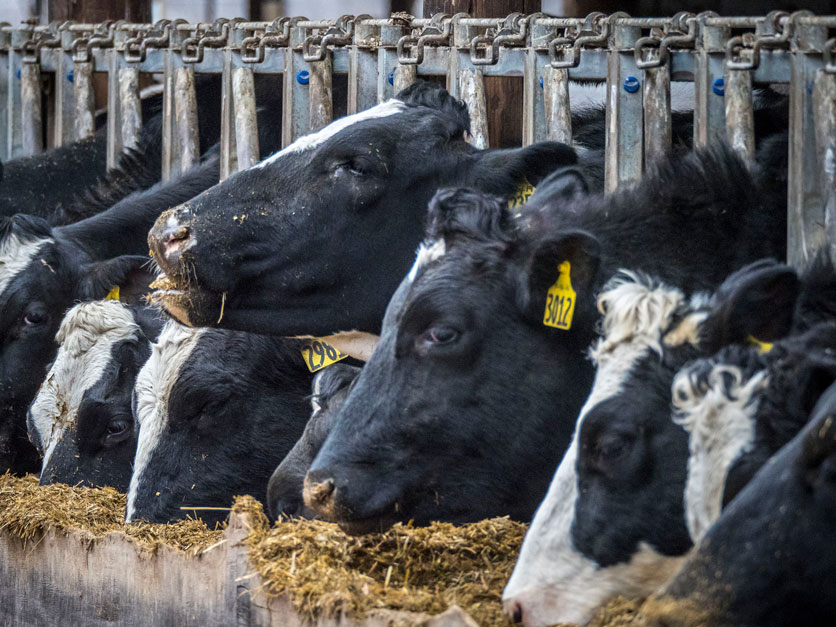A Senate committee advanced a reauthorization bill for animal drug user fees Thursday after adopting an amendment to speed reviews of feed ingredients that can address environmental concerns or make livestock production more efficient.
The Senate Health, Education, Labor and Pensions Committee voted 19-2 to approve the proposal offered by Sen. Roger Marshall, R-Kan., to create a pathway at FDA to approve new feed additives that can reduce methane emissions, diminish pre-harvest food safety concerns and improve animal well-being.
“Currently the FDA is treating certain feed products as drugs,” Marshall said during debate on the bill that would reauthorize the Animal Drug and Animal Generic Drug User Fee Acts (ADUFA and AgDUFA) . “This is an outdated system that doesn’t help our livestock industry, and the FDA recognizes this barrier. This is a common-sense solution.”
The committee's top Republican, Bill Cassidy, R-La., said the regulatory change would establish a new category for zootechnical animal food substances. Under the amendment, FDA must review them as feed additives rather than drugs, in line with what the agency does with dietary supplements.
A Democratic co-sponsor of the amendment, Wisconsin Sen. Tammy Baldwin, added that because some products seeking market approvals today do not fit into an existing pathway at FDA, it could take up to 10 years to bring them to market. The proposed bill could reduce that timeline considerably.
“Any further delay in passing this amendment would only harm American farmers in accessing products with vital functions, such as reducing salmonella colonization in chickens and increasing milk production in dairy cattle. It would also put farmers at a disadvantage in competing on an international stage since products intended for the new FDA pathway are already being used around the world,” Baldwin said.
Marshall also submitted a letter of support from more than 135 producer, agribusiness, and industry groups.
The American Feed Industry Association and other stakeholders have asked FDA to modernize its policy manual from its 1998 version, which AFIA said has “effectively blocked animal food manufacturers from clearly labeling their feed products with the non-nutritive benefits they may bring about unless they are reviewed through the FDA Center for Veterinary Medicine’s cumbersome drug approval process.” FDA has said it can’t update the guidance without congressional approval.
Don’t miss a beat! It’s easy to sign up for a FREE month of Agri-Pulse news! For the latest on what’s happening in Washington, D.C. and around the country in agriculture, just click here.
“Growing bipartisan support for a legislative solution proves that our nation’s elected officials are committed to bringing feed innovation to America’s farmers and ranchers,” AFIA President and CEO Constance Cullman said in a statement. “Now, our producers will soon be able to reap the benefits of feed products which contribute to improved animal nutrition, production and food safety and reduced environmental impacts, while competing in a global marketplace that has already marched on without the United States.”
The National Grain and Feed Association said during a 2022 FDA listening session that the administration needed to modernize its policies to “allow animal food manufacturers to make truthful, non-misleading production, environmental and well-being claims for animal foods that have been substantiated to provide such benefits in a more efficient manner.”
David Fairfield, NGFA senior vice president of feed, said in a statement NGFA strongly endorses the bill as it would “promote the availability of animal food products with novel benefits, such as improving the environment and reducing human foodborne illness.”
A House committee approved its ADUFA and AgDUFA bill earlier this year, but the full House hasn't acted on it yet. The current authorization of the user fee programs expires at the end of September.
For more news, visit www.Agri-Pulse.com.


